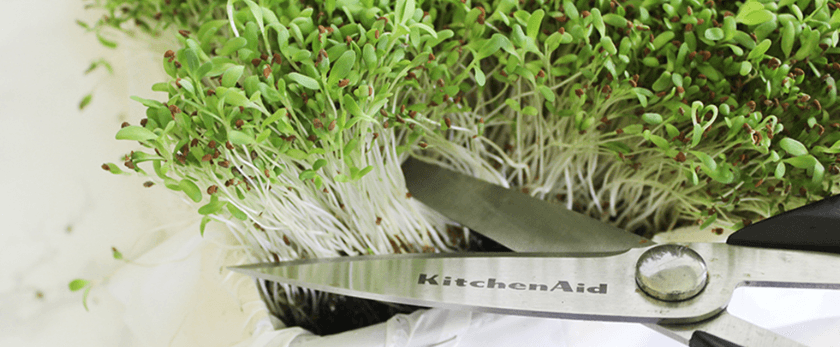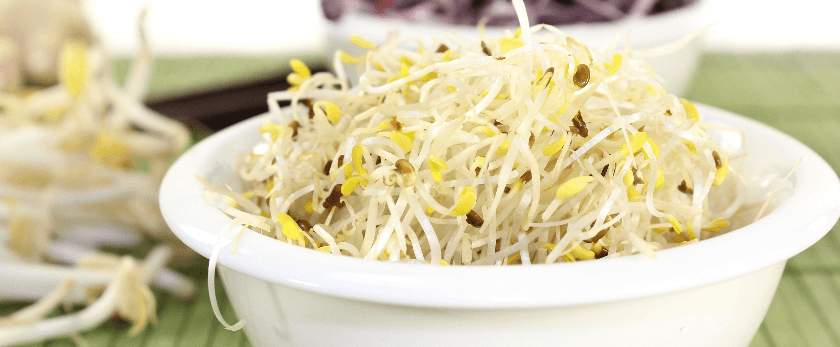Alfalfa sprouts are a delicious and nutritious addition to any meal. Not only are they packed with vitamins and minerals, but they are also easy to grow at home. By growing your own alfalfa sprouts, you can save money, reduce your carbon footprint, and have a fresh supply of sprouts whenever you need them. In this article, we will guide you through the process of growing your own alfalfa sprouts, from caring for them to common problems and the best time to grow them.
How to Care for Alfalfa Sprouts
Alfalfa sprouts are easy to care for, and with a little bit of attention, you can have a bountiful harvest in just a few days. Here are the key things to keep in mind when caring for your alfalfa sprouts:
Watering
The most important thing to remember when watering your alfalfa sprouts is to keep them moist, but not waterlogged. You can use a spray bottle to mist the sprouts twice a day, or you can water them gently with a watering can. Make sure to use room temperature water, as cold water can shock the sprouts and hinder their growth.
Light
Alfalfa sprouts need indirect sunlight to grow. Place them near a window where they can get some natural light, but make sure they are not exposed to direct sunlight, as it can dry out the sprouts and cause them to wilt. If you don't have a sunny spot, you can use a grow light to provide the necessary light for the sprouts.
Soil
Alfalfa sprouts do not require soil to grow, as they can sprout in a variety of mediums. However, if you choose to grow them in soil, make sure to use a well-draining potting mix. You can also use a shallow tray or jar with a layer of moist paper towels or cheesecloth as a growing medium.
Fertilizer
Alfalfa sprouts do not require fertilizer to grow, as they are already packed with nutrients. However, if you want to give them an extra boost, you can use a diluted liquid fertilizer once a week. Make sure to follow the instructions on the fertilizer package and use it sparingly.
Pruning
As your alfalfa sprouts grow, you may notice some yellow or wilted sprouts. These should be removed to prevent them from rotting and affecting the rest of the sprouts. You can also trim the sprouts to the desired length before harvesting.

What is the Best Time to Grow Alfalfa Sprouts?
Alfalfa sprouts can be grown year-round, but they thrive in moderate temperatures. The ideal temperature for growing alfalfa sprouts is between 60-70°F (15-21°C). If the temperature is too high, the sprouts may wilt, and if it's too low, they may take longer to grow.
Common Problems with Alfalfa Sprouts
While alfalfa sprouts are relatively easy to grow, they can face some common problems. Here are a few issues you may encounter and how to address them:
Mold
Mold can be a common problem when growing alfalfa sprouts, especially if they are not properly drained or if the growing medium is too moist. To prevent mold, make sure to drain the sprouts well after watering and avoid overwatering. If you notice mold, remove the affected sprouts and adjust your watering schedule.
Wilting
If your alfalfa sprouts are wilting, it could be due to a lack of water or too much heat. Make sure to water them regularly and keep them in a cool, well-ventilated area. If the sprouts are exposed to direct sunlight, move them to a shadier spot.
Pests
Pests such as fruit flies and aphids can be attracted to alfalfa sprouts. To prevent pests, make sure to keep the growing area clean and free of any food debris. You can also use natural pest control methods such as neem oil or diatomaceous earth to keep pests at bay.
Responsible Disposal Methods
Once you have harvested your alfalfa sprouts, it's important to dispose of the leftover sprouts and growing medium responsibly. You can compost the sprouts and growing medium, as they are biodegradable and will add nutrients to your compost. If you don't have a compost bin, you can also dispose of them in your green waste bin.
In Conclusion
Growing your own alfalfa sprouts is a simple and rewarding process. By following these care tips and being mindful of common problems, you can have a fresh supply of sprouts at your fingertips. Not only is it a cost-effective and eco-friendly option, but it also allows you to have control over the quality and freshness of your sprouts. So why not give it a try and start growing your own alfalfa sprouts today? Your taste buds and the planet will thank you.










